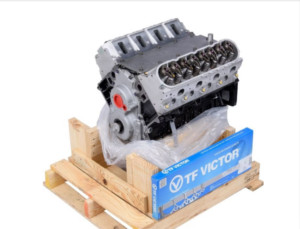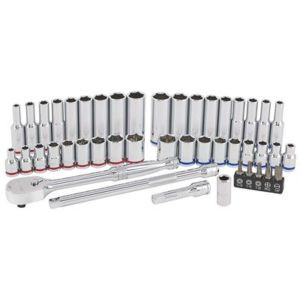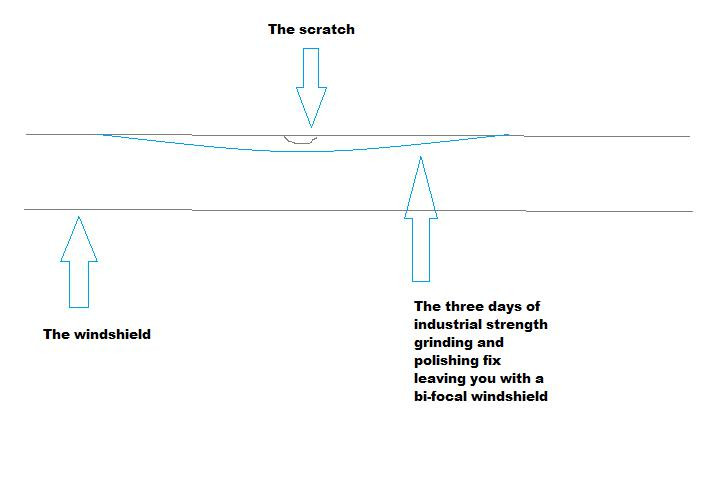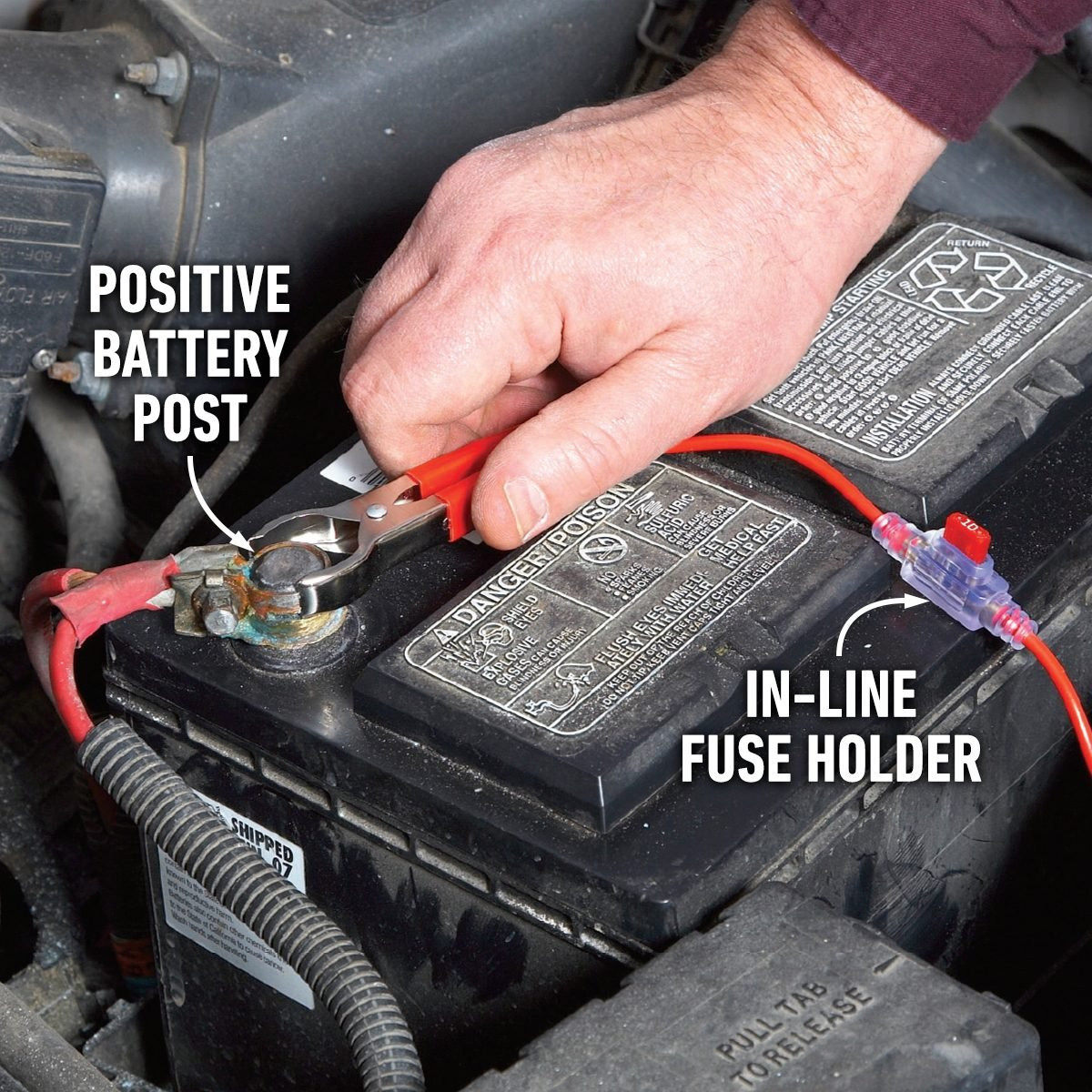How Much To Fix Car Engine: A Comprehensive Guide

Fixing a car engine can be a significant expense, but understanding the costs involved is the first step towards making informed decisions. At CARDIAGTECH.NET, we help you navigate the complexities of engine repair and replacement, offering guidance on everything from diagnosing the problem to sourcing the right parts and tools, and finding the best solutions for your budget. Let’s explore the factors that influence repair costs and how to optimize your repair strategy.
1. Decoding Car Engine Repair Costs: An Initial Overview
The cost to fix a car engine can vary significantly, influenced by factors such as the type of engine, the extent of the damage, and whether you opt for repair or replacement. According to RepairPal, a minor engine repair can range from $500 to $1,000, while a complete engine replacement could cost anywhere from $3,000 to $8,000 or even more. This wide range underscores the importance of understanding the specific issues affecting your engine and exploring all available options to ensure cost-effectiveness.
1.1. Factors Influencing the Cost of Fixing Your Car Engine
Several factors can affect the overall expense of engine repairs.
- Type of Repair: Simple fixes like replacing spark plugs or a faulty sensor will be less expensive than addressing major issues such as a blown head gasket or damaged pistons.
- Vehicle Make and Model: Luxury or high-performance vehicles typically have pricier parts and require specialized labor, increasing the overall cost.
- Labor Costs: Mechanic labor rates vary by location and shop. Urban areas and specialized mechanics often charge more per hour.
- Parts Availability: The ease of sourcing parts can impact the cost. Rare or imported car parts may be more expensive and take longer to acquire.
- New vs. Used Parts: Choosing between new, remanufactured, or used parts can significantly affect the price. New parts offer reliability but at a higher cost, while used parts are cheaper but come with increased risk.
 Engine block needing assessment for repair How much does it cost to fix car engine?
Engine block needing assessment for repair How much does it cost to fix car engine?
1.2. Key Cost Considerations
When estimating the cost to fix a car engine, keep these considerations in mind:
- Diagnostic Fees: Many shops charge a fee to diagnose the engine problem. This can range from $75 to $150, but some shops will waive the fee if you proceed with the repair.
- Component Costs: Parts such as pistons, gaskets, belts, and hoses all contribute to the overall cost. Prices can vary widely depending on the quality and brand.
- Additional Repairs: Often, fixing one engine issue reveals others. Be prepared for potential additional costs associated with these unexpected discoveries.
- Warranty: Check if the repair work and parts come with a warranty. A longer warranty can provide peace of mind and protection against future issues.
2. Understanding the Spectrum: Common Car Engine Repairs and Their Costs
To better prepare for potential expenses, let’s examine some common car engine repairs and their typical cost ranges. Keep in mind that these are estimates, and actual costs can vary.
2.1. Minor Repairs: Addressing Small Engine Issues
Minor repairs typically involve replacing components that are easily accessible and don’t require extensive labor.
2.1.1. Spark Plug Replacement
- Description: Replacing worn spark plugs to improve engine performance and fuel efficiency.
- Average Cost: $50 – $200
- Factors Affecting Cost: Type of spark plugs (standard, platinum, iridium), labor rates.
2.1.2. Oxygen Sensor Replacement
- Description: Replacing a faulty oxygen sensor to ensure proper air-fuel mixture and reduce emissions.
- Average Cost: $100 – $300
- Factors Affecting Cost: Sensor brand, vehicle model, labor rates.
2.1.3. Thermostat Replacement
- Description: Replacing a malfunctioning thermostat to regulate engine temperature.
- Average Cost: $100 – $250
- Factors Affecting Cost: Thermostat type, vehicle accessibility, labor rates.
2.2. Moderate Repairs: Tackling More Complex Problems
Moderate repairs involve more significant work, often requiring specialized tools and expertise.
2.2.1. Head Gasket Replacement
- Description: Replacing a blown head gasket to seal the cylinder head to the engine block.
- Average Cost: $1,000 – $2,000
- Factors Affecting Cost: Vehicle make and model, labor time, machining costs for head or block resurfacing.
2.2.2. Timing Belt Replacement
- Description: Replacing the timing belt to ensure proper synchronization of the engine’s moving parts.
- Average Cost: $500 – $1,000
- Factors Affecting Cost: Vehicle make and model, whether the water pump is replaced simultaneously, labor rates.
2.2.3. Catalytic Converter Replacement
- Description: Replacing a failing catalytic converter to reduce harmful emissions.
- Average Cost: $500 – $1,500
- Factors Affecting Cost: Type of converter (OEM, aftermarket), vehicle emissions standards, labor rates.
2.3. Major Repairs: Addressing Significant Engine Damage
Major repairs involve extensive work and can be nearly as costly as replacing the engine.
2.3.1. Piston Ring Replacement
- Description: Replacing worn piston rings to improve compression and reduce oil consumption.
- Average Cost: $2,000 – $5,000
- Factors Affecting Cost: Engine complexity, labor time, cost of new rings and gaskets.
2.3.2. Valve Job
- Description: Reconditioning or replacing valves and valve seats to improve engine performance.
- Average Cost: $1,500 – $3,500
- Factors Affecting Cost: Number of valves, cost of valve components, labor rates.
2.3.3. Engine Block Repair
- Description: Repairing cracks or damage to the engine block.
- Average Cost: $2,500 – $6,000
- Factors Affecting Cost: Extent of damage, machining costs, labor time.
3. Engine Replacement: When Repair Isn’t Enough
Sometimes, the damage to an engine is so extensive that repair is no longer a viable option. In these cases, engine replacement becomes necessary.
3.1. New Engine Replacement: The Gold Standard
- Description: Installing a brand-new engine directly from the manufacturer or a certified supplier.
- Average Cost: $4,000 – $10,000+
- Pros:
- Maximum reliability and longevity
- Full manufacturer warranty
- Improved performance
- Cons:
- Highest cost
- Potential for higher installation fees
3.2. Remanufactured Engine Replacement: A Cost-Effective Alternative
- Description: Installing an engine that has been completely disassembled, cleaned, and rebuilt with new or reconditioned parts to meet original factory specifications.
- Average Cost: $3,000 – $7,000
- Pros:
- Lower cost than a new engine
- Good reliability with a solid warranty
- Environmentally friendly (reusing existing components)
- Cons:
- Slightly less reliable than a new engine
- Performance may not be as high as a new engine
3.3. Used Engine Replacement: The Budget Option
- Description: Installing a used engine from another vehicle, typically sourced from salvage yards.
- Average Cost: $1,500 – $4,500
- Pros:
- Lowest upfront cost
- Quick availability
- Cons:
- Highest risk of failure
- Limited or no warranty
- Uncertain history and condition
3.4. Factors Affecting Engine Replacement Costs
- Engine Type: The type of engine (e.g., inline, V6, V8, diesel, hybrid) greatly affects the price.
- Vehicle Make and Model: As with repairs, luxury and high-performance vehicles have more expensive engine replacement costs.
- Labor Costs: Installation can take 10-20 hours, depending on the vehicle, so labor costs significantly impact the total price.
- Additional Components: Replacement may require new hoses, belts, fluids, and other components, adding to the overall cost.
- Warranty: The length and scope of the warranty can affect the price. A longer warranty provides better protection but may cost more.
4. DIY vs. Professional: Weighing Your Options
Deciding whether to tackle engine repairs yourself or hire a professional is a critical decision.
4.1. DIY Engine Repair: The Hands-On Approach
- Pros:
- Significant cost savings on labor
- Personal satisfaction of completing the job
- Control over parts selection
- Cons:
- Requires extensive mechanical knowledge and skills
- Need for specialized tools and equipment
- Time-consuming and physically demanding
- Risk of mistakes that could damage the engine further
- No warranty on labor
4.2. Professional Engine Repair: The Expertise Advantage
- Pros:
- Ensured quality and accuracy
- Access to specialized tools and equipment
- Warranty on parts and labor
- Saves time and effort
- Cons:
- Higher cost due to labor fees
- Less control over the repair process
- Need to find a reputable and trustworthy mechanic
 Tools of the mechanic trade essential for fixing car engines.
Tools of the mechanic trade essential for fixing car engines.
4.3. Making the Right Choice
Consider the following factors when deciding between DIY and professional engine repair:
- Your Skill Level: Be honest about your mechanical abilities. If you’re not comfortable with complex repairs, it’s best to leave it to the professionals.
- Time Commitment: Engine repairs can take a significant amount of time. If you have a busy schedule, professional repair may be more practical.
- Tool Availability: Do you have the necessary tools and equipment? Purchasing these can add significantly to the cost of a DIY repair.
- Budget: Compare the cost of DIY (parts + tools) versus professional repair (parts + labor) to make an informed decision.
5. Strategic Approaches to Minimize Engine Repair Costs
There are several strategies you can employ to reduce the financial burden of engine repairs.
5.1. Regular Maintenance: Prevention is Key
- Oil Changes: Regular oil changes are crucial for engine health. Follow the manufacturer’s recommended intervals.
- Fluid Checks: Regularly check and top off coolant, power steering fluid, and brake fluid.
- Filter Replacements: Replace air filters and fuel filters as recommended to ensure proper engine performance.
- Tune-Ups: Schedule regular tune-ups to address minor issues before they become major problems.
5.2. Shop Around: Get Multiple Estimates
- Contact Several Mechanics: Obtain estimates from multiple shops to compare prices and services.
- Ask for a Detailed Breakdown: Ensure the estimate includes a breakdown of parts and labor costs.
- Check Online Reviews: Look for reviews and ratings to assess the reputation and reliability of the shops.
5.3. Consider Refurbished or Aftermarket Parts
- Refurbished Parts: These parts have been restored to like-new condition and can offer significant savings compared to new OEM parts.
- Aftermarket Parts: These parts are made by companies other than the original manufacturer and can be more affordable. Choose reputable brands to ensure quality.
5.4. Negotiate Prices
- Negotiate with Mechanics: Don’t be afraid to negotiate prices, especially on labor costs.
- Ask About Discounts: Inquire about discounts for seniors, students, or military personnel.
- Provide Your Own Parts: If you can source parts cheaper yourself, ask the mechanic if they’ll install them.
5.5. Financing Options
- Payment Plans: Some repair shops offer payment plans or financing options to spread out the cost of repairs.
- Credit Cards: Consider using a credit card with a low interest rate or a 0% introductory offer to finance the repairs.
- Personal Loans: Explore personal loans from banks or credit unions for a larger repair expense.
6. Navigating the Repair Process: A Step-by-Step Guide
Here’s a step-by-step guide to help you navigate the engine repair process:
- Diagnose the Problem: Get a professional diagnosis to identify the exact issue.
- Get Estimates: Obtain estimates from multiple repair shops.
- Evaluate Options: Weigh the costs and benefits of repair versus replacement.
- Choose a Repair Shop: Select a reputable shop with positive reviews and fair prices.
- Approve the Work: Review and approve the repair plan and costs before work begins.
- Monitor Progress: Stay in communication with the shop to monitor the progress of the repair.
- Inspect the Work: Upon completion, inspect the work to ensure it meets your expectations.
- Get a Warranty: Ensure you receive a warranty on parts and labor.
- Pay the Bill: Pay the bill and keep a copy for your records.
7. CARDIAGTECH.NET: Your Partner in Auto Repair Solutions
At CARDIAGTECH.NET, we understand the challenges of car engine repair. We offer a wide range of high-quality tools and equipment to help both DIY enthusiasts and professional mechanics tackle engine repairs with confidence.
7.1. Essential Tools for Engine Repair
- Engine Analyzers: Diagnose engine problems quickly and accurately.
- Compression Testers: Check cylinder compression to identify issues with rings, valves, or head gaskets.
- Timing Lights: Set the ignition timing for optimal engine performance.
- Scan Tools: Read and clear diagnostic trouble codes (DTCs) from the engine control unit (ECU).
- Socket Sets and Wrenches: Essential for disassembling and reassembling engine components.
- Torque Wrenches: Ensure proper tightening of bolts and fasteners.
- Specialty Tools: Tools for specific tasks such as valve spring compression, piston ring installation, and timing belt replacement.
7.2. Why Choose CARDIAGTECH.NET?
- High-Quality Products: We offer only the highest quality tools and equipment from trusted brands.
- Competitive Prices: We provide competitive prices to help you save money on your repairs.
- Expert Advice: Our team of experts can provide advice and support to help you choose the right tools for your needs.
- Excellent Customer Service: We are committed to providing excellent customer service and support.
8. Real-World Scenarios: Cost Examples for Common Engine Issues
To give you a clearer picture of potential costs, here are a few real-world scenarios:
8.1. Scenario 1: 2015 Honda Civic – Misfire Due to Worn Spark Plugs
- Diagnosis: Misfire on cylinder 3 due to worn spark plugs.
- Repair: Replace all four spark plugs.
- Parts: $40 (set of spark plugs)
- Labor: $80 (1 hour at $80/hour)
- Total Cost: $120
8.2. Scenario 2: 2012 Ford F-150 – Blown Head Gasket
- Diagnosis: Overheating and coolant loss due to a blown head gasket.
- Repair: Replace head gasket, resurface cylinder head, replace coolant.
- Parts: $250 (head gasket set), $50 (coolant)
- Machining: $150 (cylinder head resurfacing)
- Labor: $800 (10 hours at $80/hour)
- Total Cost: $1,250
8.3. Scenario 3: 2018 Toyota Camry – Engine Replacement (Used Engine)
- Diagnosis: Severe engine damage due to lack of oil, requiring engine replacement.
- Repair: Replace engine with a used engine from a salvage yard.
- Parts: $2,000 (used engine), $100 (new fluids and filters)
- Labor: $800 (10 hours at $80/hour)
- Total Cost: $2,900
9. Long-Term Strategies for Engine Health and Cost Savings
Beyond immediate repairs, consider these long-term strategies to maintain engine health and minimize future costs:
- Use High-Quality Oil: Invest in high-quality synthetic oil that meets or exceeds the manufacturer’s specifications.
- Follow Maintenance Schedule: Adhere to the recommended maintenance schedule in your owner’s manual.
- Address Issues Promptly: Don’t ignore warning signs such as unusual noises, vibrations, or warning lights.
- Drive Conservatively: Avoid aggressive driving habits such as rapid acceleration and hard braking, which can strain the engine.
- Keep the Engine Clean: Regularly clean the engine compartment to prevent the buildup of dirt and debris, which can cause overheating and damage.
10. FAQs: Addressing Common Questions About Car Engine Repair Costs
Here are some frequently asked questions about car engine repair costs:
10.1. How much does it cost to diagnose an engine problem?
- The cost to diagnose an engine problem typically ranges from $75 to $150.
10.2. Is it worth repairing an old engine, or should I replace it?
- The decision depends on the extent of the damage, the age and value of the vehicle, and the cost of repair versus replacement.
10.3. Can I replace my engine with a different type of engine?
- While it’s possible, it’s usually not recommended due to compatibility issues and potential legal restrictions.
10.4. How long does an engine replacement take?
- Engine replacement typically takes 10-20 hours, depending on the vehicle and the complexity of the job.
10.5. What is the warranty on a new or remanufactured engine?
- Warranties vary, but new engines typically come with a 2-3 year warranty, while remanufactured engines may have a 1-2 year warranty.
10.6. How can I find a reputable mechanic?
- Ask for recommendations from friends and family, check online reviews, and look for certifications such as ASE (Automotive Service Excellence).
10.7. What are the signs of a failing engine?
- Signs include unusual noises, vibrations, decreased performance, increased oil consumption, and warning lights.
10.8. Can I trade in a car with a bad engine?
- Yes, but you’ll likely receive significantly less for the car than if it were in good condition.
10.9. Are synthetic oils worth the extra cost?
- Yes, synthetic oils offer better protection and can extend the life of your engine, making them a worthwhile investment.
10.10. How often should I change my oil?
- Follow the manufacturer’s recommended oil change intervals, typically every 5,000-7,500 miles for conventional oil and 7,500-10,000 miles for synthetic oil.
Conclusion: Empowering You with Knowledge and Solutions
Understanding the costs associated with fixing a car engine is essential for making informed decisions and protecting your investment. By considering the factors that influence repair costs, exploring your options, and employing strategic approaches to minimize expenses, you can navigate the repair process with confidence. At CARDIAGTECH.NET, we are dedicated to providing you with the tools, equipment, and expertise you need to keep your engine running smoothly.
Are you facing engine repair challenges? Contact CARDIAGTECH.NET today for expert advice and high-quality tools to get the job done right. Our team is ready to assist you with your automotive needs. Reach out to us at 276 Reock St, City of Orange, NJ 07050, United States, or connect via Whatsapp at +1 (641) 206-8880. Visit our website at CARDIAGTECH.NET to explore our wide range of products and services. Let CARDIAGTECH.NET be your trusted partner in automotive solutions.




